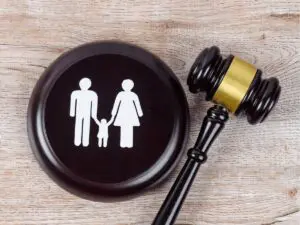Want to Change Your Custody Order in San Diego? Here’s What You Must Show

When a court finalizes a child custody agreement, it does so with the child’s best interests in mind. But life is unpredictable. A parenting plan that was working well can become outdated as children grow and family dynamics change.
If you need to modify a child custody order in San Diego, it’s important to recognize the legal requirements and how to present a strong case to the court.
At Mattis Law, A.P.C., we understand the emotional and logistical challenges that come with raising children across two households. If you’re wondering how to revise your parenting plan, this guide will walk you through the essentials, including how our firm can help protect your parental rights every step of the way.
When Can You Modify a Custody Order in California?
Under California law, once a custody arrangement is in place, it can only be modified by a court order. Courts are generally reluctant to disrupt a child’s routine unless there’s a compelling reason.
The requesting parent can initiate a custody modification in California by proving that there has been a substantial change of circumstances since the last order was made.
What Qualifies as a Substantial Change of Circumstances?
This is the cornerstone of any successful custody modification. Courts don’t accept minor disagreements or day-to-day parenting challenges as valid reasons for change. Instead, you must demonstrate a significant shift that affects the child’s well-being. Examples include:
- One parent relocating far enough to disrupt current visitation arrangements
- A parent’s change in employment schedule that interferes with parenting time
- Evidence of domestic violence, substance abuse, or neglect
- A child’s changing educational, emotional, or medical needs
- The child expressing a mature preference for living with the other parent
The court evaluates these claims carefully, focusing on how the changes impact the child, not just the parents.
How to Revise a Parenting Plan in San Diego
If you believe a modification is necessary, the first step is to file a child custody court motion with the family court. This process may include:
- Filing the Request: You’ll submit a Request for Order (FL-300) explaining the changes you’re seeking and why.
- Serving the Other Parent: The other parent must be formally notified, giving them the opportunity to respond.
- Mediation: San Diego County requires parents to attend Family Court Services mediation before a hearing.
- Court Hearing: If no agreement is reached in mediation, a judge will evaluate the evidence and make a determination.
Working with an experienced San Diego family law attorney helps ensure that your motion includes the right evidence and arguments to support your request.
Factors That the Court Will Consider
The judge’s primary responsibility is to protect the child’s best interests. This means reviewing how the proposed change would affect their:
- Stability and continuity
- Relationship with both parents
- Safety and welfare
- Emotional, developmental, and physical needs
If the court believes the current arrangement no longer serves the child’s needs due to a verified substantial change of circumstances, it may approve the requested modification.
Common Mistakes to Avoid
There are common mistakes that can prevent you from taking the steps you need to make to create an atmosphere where your child can thrive.
Assuming Verbal Agreements Are Enough
Even if both parents agree to change the schedule informally, that agreement is not legally enforceable. If one parent decides to back out later, the original court order still stands. Always formalize changes through the court.
Filing Without Legal Support
The legal standards for modifying custody are strict. A poorly prepared motion lacking sufficient evidence can not only be denied but may also damage your standing in future proceedings.
Using the Child as a Messenger
Parents should never place children in the middle of custody disputes. Not only is this emotionally harmful, but it can also reflect poorly on your case in court.
When Emergency Custody Modifications Are Appropriate
In high-risk situations, such as allegations of abuse or neglect, a parent can file for an emergency order. These are fast-tracked cases where the court may grant immediate temporary custody changes to protect the child. If you’re facing this kind of crisis, reach out to Mattis Law, A.P.C., for immediate guidance.
How We Can Help
Modifying a child custody order isn’t just about filing paperwork. It’s about showing the court a clear and compelling picture of why the change is necessary. Let us help you take the next step toward creating a parenting plan that works for you and your child.
At Mattis Law, A.P.C., we bring a compassionate, strategic approach to every custody issue. Whether you’re seeking more time with your child, need to relocate, or are worried about your child’s safety under the current arrangement, we’ll guide you through each step with empathy and clarity.
Attorney Amelia J. Mattis has been recognized as one of San Diego’s Rising Stars by Super Lawyers and was selected as a Top 10 Family Law Attorney by Attorney and Practice Magazine. She also has extensive experience navigating custody modifications, including those involving high-conflict cases and special needs considerations.
Speak With an Experienced Family Law Attorney in San Diego
If your current parenting plan no longer meets your child’s needs, don’t wait. Call Mattis Law, A.P.C., at (858) 328-4400 to schedule a free consultation today with our San Diego child custody lawyer. We have helped countless San Diego families revise their custody orders to better reflect their reality, and we can help you.